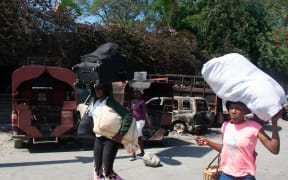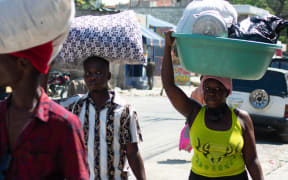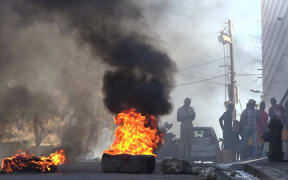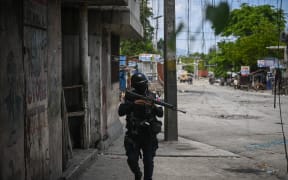By Kathryn Armstrong and Will Grant
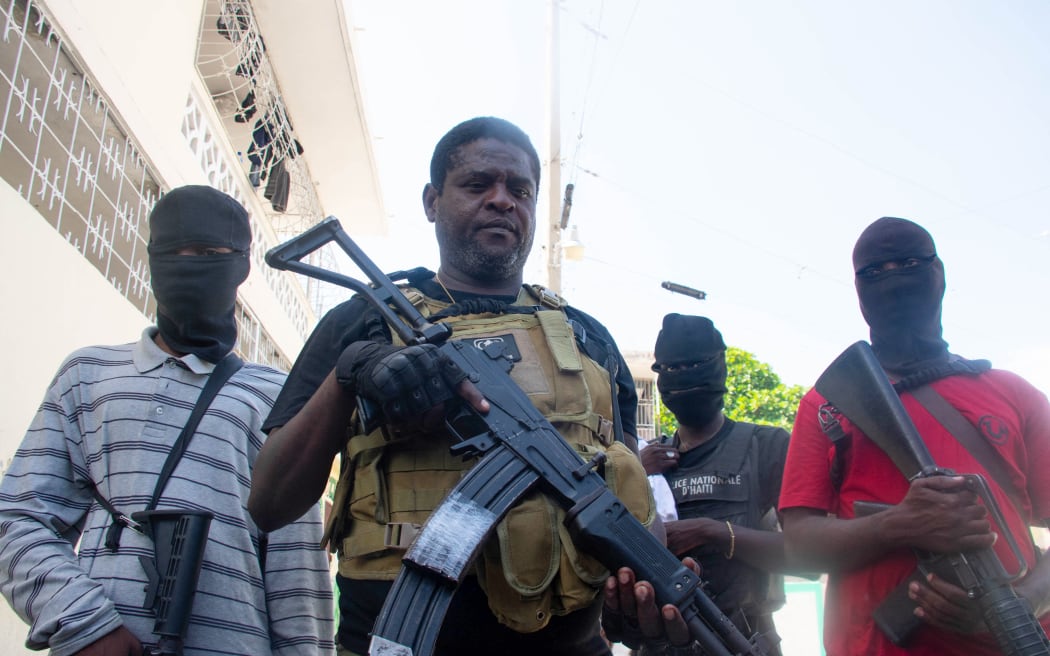
Gang leader Jimmy "Barbecue" Chérizier and his men are seen in Port-au-Prince, Haiti, 5 March 2024. Chérizier has demanded that the prime minister stand down. Photo: AFP
Haiti's Prime Minister Ariel Henry has landed in Puerto Rico after apparently being unable to return to his country.
According to local media, he arrived in the capital San Juan on Tuesday after flying from the US state of New Jersey.
For the past few days, Henry's whereabouts had been unknown following a visit to Kenya.
Violence in Haiti has spiralled in his absence - with armed gangs trying to take over the international airport to stop him from landing.
Their leader, Jimmy "Barbecue" Chérizier, has demanded the prime minister stand down - warning that the country is headed "straight for a civil war that will lead to genocide" otherwise.
The fact that Henry seems to have been turned away from the nation he leads is a sign of just how dysfunctional Haiti has become in recent days.
If it was not already, Haiti is now perilously close to becoming a failed state.
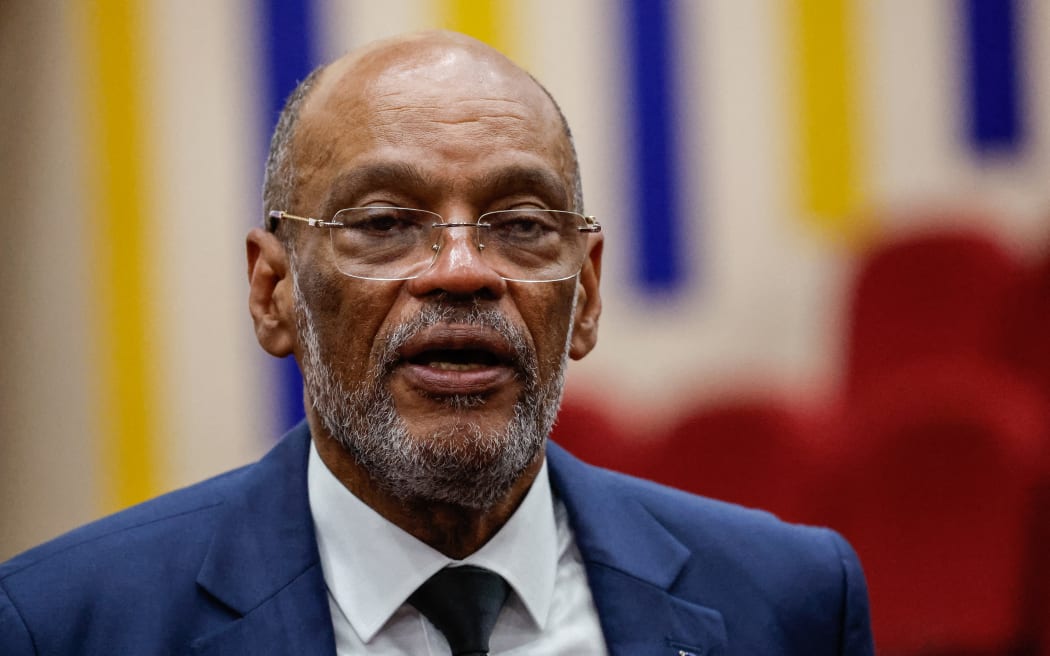
Haitian Prime Minister Ariel Henry landed San Juan, Puerto Rico after his plane was denied entry to Haiti and the Dominican Republic, local news sites reported (file picture). Photo: SIMON MAINA
Ariel Henry's plane was forced to divert to Puerto Rico - a US territory - after it was denied entry to Haiti and the Dominican Republic, local news sites reported.
The Dominican Republic on Tuesday announced it was closing its airspace with neighbouring Haiti, with which it shares the island of Hispaniola.
The country's leader, Luis Abinader, recently said measures would be taken to ensure a level of "peace and control" was maintained at its land border.
Several reasons may explain why Henry's plane was not allowed to land in Haiti - it may simply have been procedural.
Since a state of emergency was imposed on Sunday, all flights have been cancelled until further notice and the airport in the capital Port-au-Prince is, in essence, closed.
The other reason may be for his own safety. Henry would be a clear target for the gangs who are demanding that he step down, and his return at this point may simply be deemed more of a hindrance to the nation's stability, than a help.
The wider fear for the prime minister and his supporters though, including in Washington, is that his failed attempt to return home only weakens him further.
It gives the impression that authorities beneath him are overruling his wish to get back onto Haitian soil. Instead, he is sitting in Puerto Rico from where he must figure out his next step as his country descends further into chaos.
Ariel Henry left Haiti last week to attend a regional summit in Guyana before travelling to Kenya, where he signed a deal on the deployment of a multinational police force to Haiti.
During his absence, a coalition of gangs led by Chérizier, a former police officer, went on the offensive - attacking police stations and storming two of Haiti's biggest prisons. Around 4000 inmates were able to escape.
Soldiers have been deployed to defend several of the country's airports, including the Toussaint Louverture international airport in Port-au-Prince, and the city's police academy has also been attacked by armed gang members.
According to the United Nations, some 15,000 people have been displaced in the latest flare up in violence.
Ariel Henry was sworn in, unelected, after Haiti's President, Jovenel Moïse, was assassinated in 2021 by Colombian mercenaries.
Under a political deal, Haiti was supposed to hold elections and Henry cede power by 7 February, but that did not happen.
It sparked protests as thousands took to the streets to demand he stick to the plan.
The assassination further fuelled gang violence in Haiti and left a power vacuum in the country - the poorest in the Western hemisphere.
Armed gangs, wielding weapons smuggled in from the US, have gained control of an estimated 80 percent of Port-au-Prince in recent years.
Henry has asked the international community to send troops to help fight these gangs - but so far, none have arrived.
His recent visit to Kenya was to salvage a deal to deploy around 1000 police officers to Haiti, after Kenya's High Court blocked the plan in January.
The Bahamas and Benin have committed to sending troops, while Jamaica and the state of Antigua and Barbuda have said they are willing to help. The US has pledged US$200 million to support the deployment.
Not only has Haiti been engulfed by widespread civil and political unrest, but its economy and public health system are also in tatters.
Haiti: The basics
- Population: 11.5 million (estimate)
- Area: 27,800 sq km (slightly smaller than Belgium, about the same size as the state of Maryland in the US)
- Location: Caribbean country sharing a border with the Dominican Republic
- Languages: French, Haitian Creole
- This story was first published by theBBC
